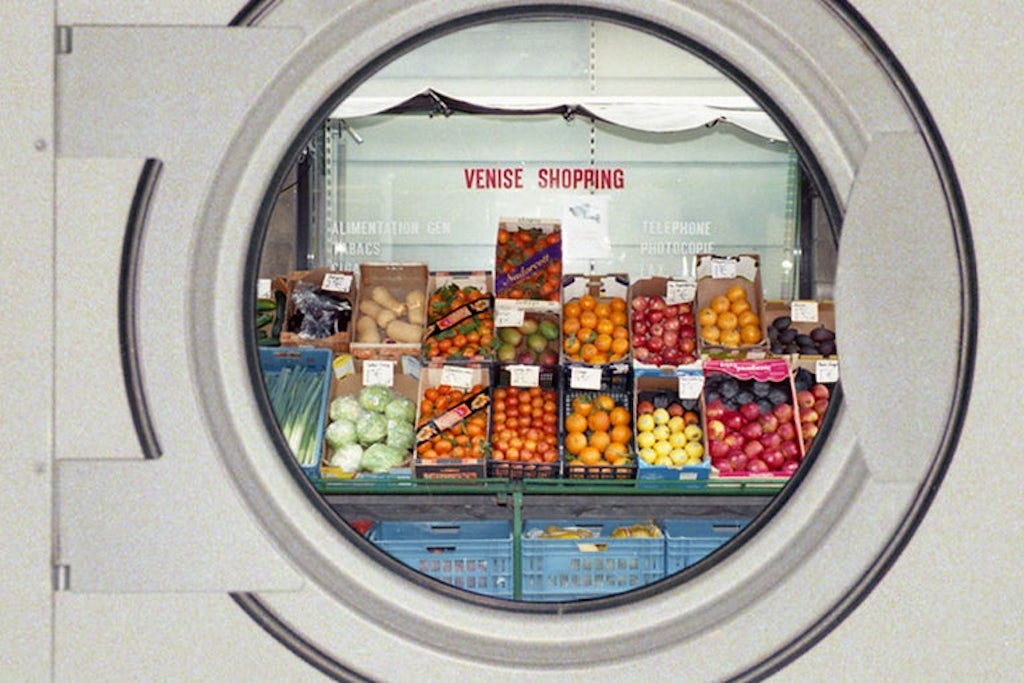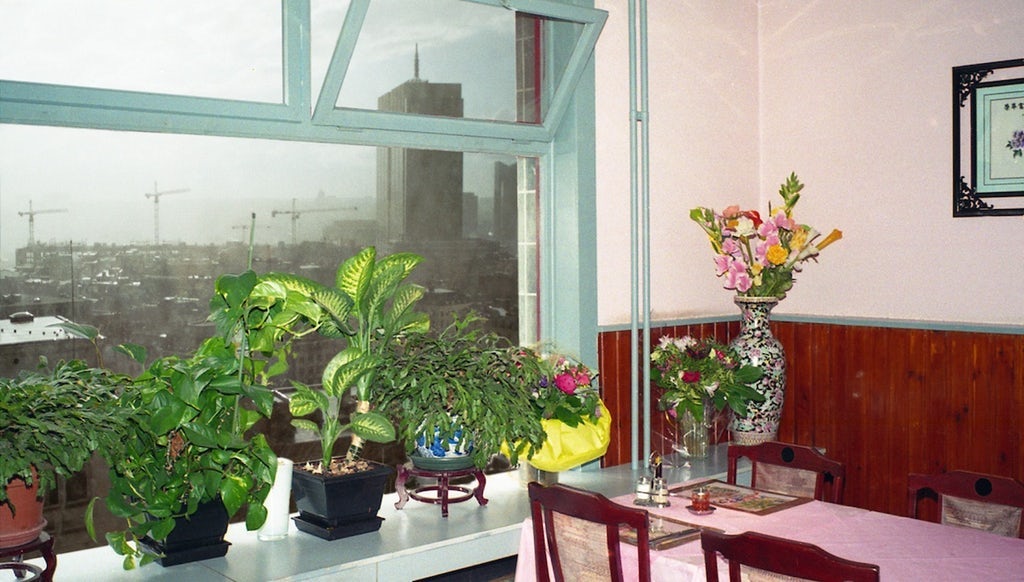
Hello Aunt Cécile, hello police officer: welcome and join in

Good morning.
Border Control is a booming business. Nation-states are strengthening; local armies are loading their ammunition.
Good morning.
Imagine that there was one artwork that broke with the idea of the artwork that we’ve been cherishing ever since Romanticism. Imagine that all artists, arts organisations, and cultural workers together created one artwork. The individuals would not need to agree. They wouldn’t need to hold extra staff meetings, wouldn’t need to rehearse – they’d just do it. Imagine that the collective artwork they produced broke with some of the classical paradigms we apply to an artwork; namely, that it has to be tangible – regardless of whether it’s in a performance, on the screen, in a book, in a museum, in the public or private space… it has to be something.
Well, not anymore.
This collective artwork would drop the romantic notion of a singular creator and would leave behind the idea of a product. This time we would not produce anything, we would not feed the juggernaut of art production that repeatedly produces art, producing to produce a product in the hope it will be seen by an audience and critics that thereby make its existence legitimate. The entire group of artists, the audience, and all the cultural workers: just one work. One work that no one can grab hold of. One work that would evolve, that would fly like sand, that would run like a river. One work that could not care less about approval or the judgement of this or that, just one enduring artwork.
And questions of internationalisation – the polarisation of the local and the global – would disappear, in the same way as non-life disappears from the new-born. Imagine if we were to jointly make room for that. That would be the work.
We have the good fortune of living in interesting times. And every month, that luck increases. People all over the globe are starting to protest the side effects of globalisation. We are so lucky. For years, the protest against globalisation was a rather exclusive activity conducted by educated leftist students. It was a hard thing to do: you had to carry banners in harsh conditions in cities like Seattle, Genoa… there were violent fights with the police… Nowadays, these rebellious students, these leftist bohemian elitist experts come home and find that their entire family is against globalisation, even grandma. A decade ago, the naughty, critical, leftist youngster upset the boring bourgeois aunt and uncle with his beliefs, and now the boring aunt and uncle are joining in. Even cops and their families are joining in, along with the majority of the middle-class. Anti-globalisation is a massively popular event. What happened to those days? It began in a soggy marsh with electing a spokesman in a lousy t-shirt to rage against the machine, against the elite, against globalisation, and it has ended with electing the current President of the United States of America. Just ten years later. The anti-globalisation movement is truly living the American dream. From zero to hero. Who would have thought it? The millions and millions of voters in the US – and very soon in a country and town near you – are all rallying against globalisation. It looks like we’ve made it – this is our time. Anti-globalisation is being globalised, and very successfully too. It’s conquering the world. The anti-globalisation movement is rapidly building a global empire of anti-globalisation. And it’s going all the way: once again borders will be closed, walls will be built; isolation is seen as a politically valuable ideal, a love for country: all of this is on the increase. Nationalism is becoming the highest value and principle.
Things have shifted rapidly. From critical and edgy movements attacking corporate capitalism and neoliberal globalisation, they’ve turned into unification movements behind the flag of a nation.
Nationalism is to politics what incest is to ethics. Time to shift the paradigm.
What does the Arts have to do with that?
Nothing. Anyone who thinks the Arts can do something efficiently is being as ridiculous as a chicken that flies over the soup in which she will be cooked. But nevertheless, what the Arts can do is to call things by their name. Not the way they are, the way they should be. And by giving them a new name, we are giving them a new world.
Well, when we gather here under the theme of Reframing the International, we should state clearly that nationalism is to politics what incest is to ethics.
Time to shift the paradigm.
But how? Because the Arts has also been playing the game. Of course. Here we are. Look at us: hundreds of attendants wanting to hear about the internationalisation of the Arts. Maybe you’re all hoping to receive some good advice, nice tips on how to better spread your work internationally, more fluently. Sorry for being the party-pooper so early in the morning. But let’s face it and let’s name it: all over the world people are rallying against globalisation, while in the arts we’re gathering in nice buildings to discuss how to further globalise. We are behaving exactly as Marx said of the bourgeoisie: “The need of a constantly expanding market for its products chases the bourgeoisie all over the globe. Everywhere they must nestle, sell their products and establish new networks.” That’s what these international networking events offer; they are meant to enable the arts to move around freely, looking for an expanding market for our products – this is what chases us all over the planet. “Always hunting for new contacts, new networks, new opportunities.” This, according to Karl Marx, describes the successful life of the bourgeoisie. Well, to be honest, it sounds great to me. Truly pleasurable. It’s what I want. I’m not in the business of a bidding war in moral lessons.
We love to sell our work globally. But I have a question regarding the consistency of the discourse, the worldview that is very often communicated in works that travel. There are probably few work environments so sensitive to the meaning of the context in which we operate as those of the Arts. This is a strength. Maybe we should use it to address some painful questions.

Let’s have a look at some of the contradictions we live with: major gaps exist between the worldview, the ideals, the discourse expressed through the Arts, and daily practice. Touring internationally is, as it happens, highly problematic simply because of that gap between the worldview that’s transmitted by the artwork and real practice.
Let’s cite a few examples:
- Almost nobody in the Arts denies climate change, but the American Presidential Cabinet does, so that joke is covered. A large majority of people in the Arts is aware of the very urgent need to start with other daily practices, but the ecological footprint of an international tour is enormous. We all know that. But we really want to travel. For most of us, touring is very important and comprises much of the joy and passion involved in what we do. But we can certainly commit ourselves to finding more responsible ways of doing it.
- There is little work which tours internationally that openly defends the speculation on symbolical capital. Yet the speculation on symbolical capital is a key part of the international touring business.
- There are few works that could defend the superficial passing-through of other cities. Yet that is the standard way of touring.
- There are few works that would accept being labelled as a representation of the nation-state that funded their production. Yet this is the context in which our work is presented.
If so many aspects of the internationalisation of our work are in contrast with the values we hold, then… what is it that we actually want when desiring to sell our work globally?
If so many aspects of the international touring context are in contrast with the artists’ values, what are we actually after? Is it money, fame, fun? Fair enough. Capitalism is very good at offering these goodies. But capitalism is even better at creating the desire for these goodies.
There are many other highly contradictory points to discover. With no problem whatsoever, I could make a moralistic statement saying to stop this hypocrisy. Luckily, the Arts has always had a tendency to be contrary. I think it’s now or never: let’s globalise.
If so many aspects of the international touring context are in contrast with the artists’ values, what are we actually after? Is it money, fame, fun? Fair enough. Capitalism is very good at offering these goodies. But capitalism is even better at creating the desire for these goodies.
Money, fame, and fun. Maybe it’s just that. I like that. All three of these things. Let’s go with that. It’s beautiful. Let’s enjoy it. We are exchanging ideas. We are exchanging beauty. And so may it continue. After all, it’s the intensity of the exchange that makes people intellectually, morally, and aesthetically rich. Let’s become richer and richer. Don’t let’s allow anti-globalists to destroy this or take it away. Maybe we should recognise this drive – it’s the core of the passion and the joy. Let’s play, let’s play everywhere!
But, yes, there is a ‘but’. There is a political price that comes with this and we had better deal with it.
We could choose to grasp this pivotal turning point and to do something.
It’s time to come up with new models. While in the performing arts, touring from town to town will probably always exist, there are certainly ways to revise the ecological footprint.
What would these new models look like?
Well there are many and none of them are new; they’re just alternatives.
Reframing the international can also mean to work profoundly in a context other than the one in which you’re based. To not just drop-off one’s product and move on.
I want to talk about a personal experience. In touring performances to different places in Europe, I noticed that in some venues there is a match with the audience and the artistic staff, and so you return again and again. That’s how in 2016 and 17, I came to be the international artist-in-residence at Archa Theatre in Prague, where both my old and new works were presented many times.
This meant that for a certain period, my work resonated more in the press and in public life in the Czech Republic than in Flanders. This allowed me to address political and aesthetic issues with another bias, because I was a foreigner. Which then led to active and sometimes spicy involvement in the public debate. Reframing the international can also mean to work profoundly in a context other than the one in which you’re based. To not just drop-off one’s product and move on.
It can give you the opportunity to speak from an outside viewpoint. You’re the fool, the stranger. There is a more reciprocal relationship in this kind of profound international work; more than mutual curiosity is at stake: both parties are invited to fundamentally review their respective identities. And this is something crucial that we need to do over and over again in this era where globalisation tests our fixed identity. It’s a crucial way to deal with our fixation on identity. Both parties have a say and an impact on this relationship, and that submerges us in a new process of subjectification. It’s what I would call emancipated internationalisation.





